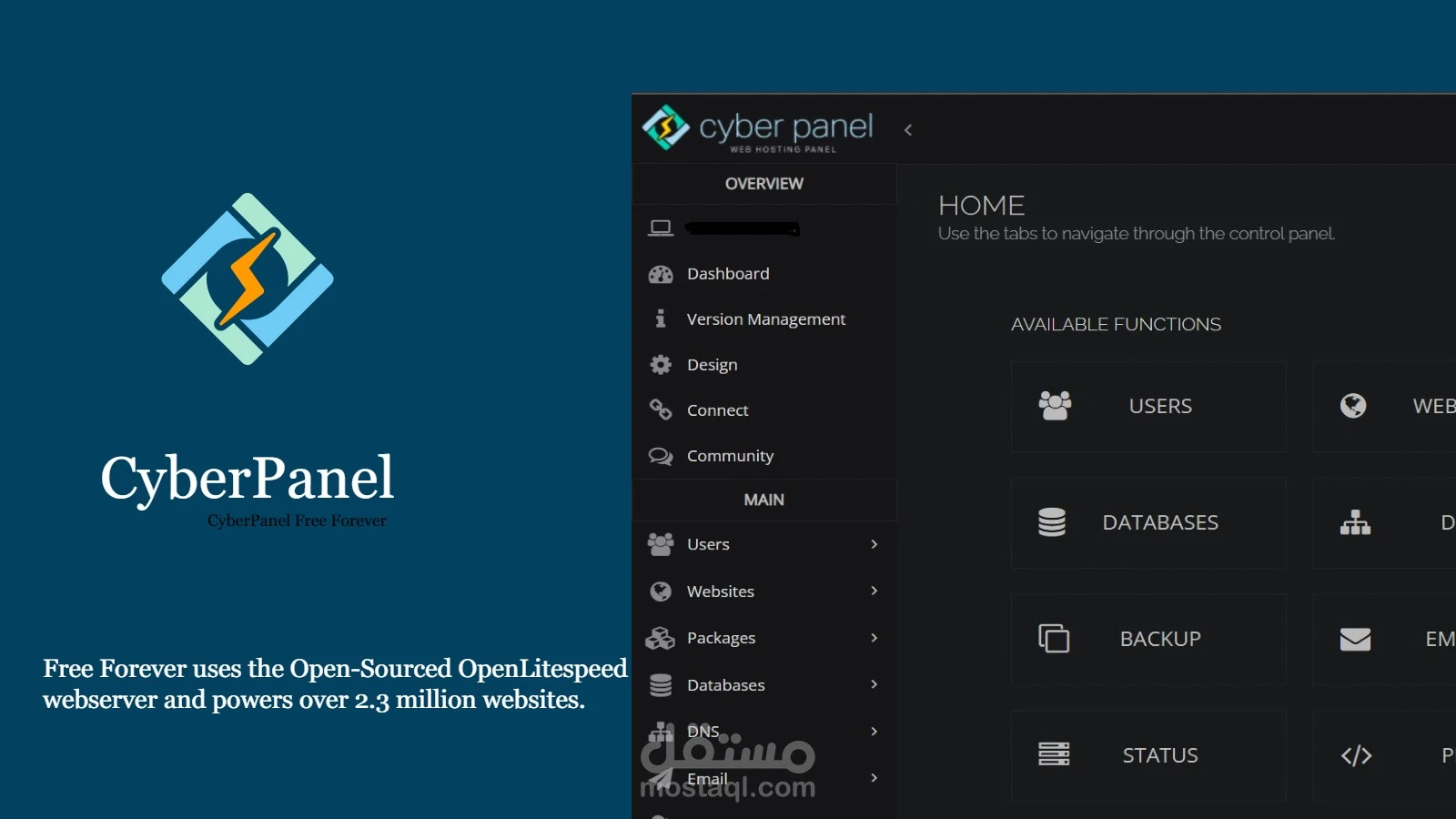CyberPanel Setup Wizard - Ultimate Guide
CyberPanel is an advanced, open-source web hosting control panel designed specifically for LiteSpeed Web Server. Whether you're managing a single website or an entire fleet of domains, CyberPanel offers an efficient, feature-rich, and user-friendly experience.
In this ultimate guide, we will explore the step-by-step **installation, configuration, security, performance optimization**, and **backup** features of CyberPanel.
Why Choose CyberPanel?
- ⚡ **Ultra-fast performance** with LiteSpeed
- ? **Advanced security** features
- ? **One-click WordPress installation**
- ? **Automated backup and restore**
- ? **Cost-effective alternative to cPanel**
System Requirements
Before installing CyberPanel, ensure that your server meets the following requirements:
- ? **Operating System**: CentOS 7, Ubuntu 20.04, AlmaLinux, Rocky Linux
- ? **RAM**: Minimum **1 GB** (Recommended: **2 GB or more**)
- ? **Disk Space**: Minimum **20 GB**
- ? **Root or sudo access required**
How to Install CyberPanel
To install CyberPanel, connect to your server via SSH and run the following command:
sh <(curl -s https://cyberpanel.net/install.sh)Follow the interactive installation steps:
- Select **LiteSpeed or OpenLiteSpeed**
- Set **Admin Password**
- Enable **PowerDNS (optional)**
- Enable **Postfix for emails (optional)**
- Enable **FTP services**
CyberPanel Initial Setup Wizard
After installation, access the **CyberPanel dashboard** by entering:
https://your-server-ip:8090Default login credentials:
- ? **Username**: admin
- ? **Password**: (the one you set during installation)
Once logged in, complete the **CyberPanel Setup Wizard** by configuring your server settings.
How to Add a Website and Domain
- Navigate to **Websites → Create Website**
- Enter **domain name, email, and package settings**
- Click on **Create Website**
Security Best Practices
? To ensure your CyberPanel is secure, follow these best practices:
- ✅ **Change default admin credentials**
- ✅ **Enable CSF Firewall**
- ✅ **Use strong SSH passwords or SSH keys**
- ✅ **Keep CyberPanel updated**
Optimizing CyberPanel for Performance
For **better speed and SEO performance**, optimize your CyberPanel by configuring **LiteSpeed Cache, Redis, and PHP settings**.
- ? Use **LiteSpeed Cache** for WordPress
- ? Enable **Brotli compression**
- ? Optimize **MySQL/MariaDB settings**
- ? Adjust **PHP memory limits and execution times**
For advanced optimizations, check LiteSpeed Optimization Guide.
Using Proxy License with CyberPanel
Reduce **LiteSpeed licensing costs** by using Proxy License. This solution helps minimize expenses while maintaining performance.
Backup and Restore in CyberPanel
To back up a website:
- Go to **Backup → Create Backup**
- Select the **website** and start the backup
To restore a website:
- Go to **Backup → Restore**
- Choose the **backup file** and restore
Advanced Customization & Integrations
CyberPanel supports **Cloudflare, Redis, Elasticsearch, and custom PHP configurations** for enhanced performance.
FAQs
Is CyberPanel free?
Yes, CyberPanel has a free version, and a paid **CyberPanel Enterprise** version with premium features.
Can I migrate from cPanel to CyberPanel?
Yes, CyberPanel offers an **easy migration tool** for cPanel users.
Does CyberPanel support Nginx?
No, CyberPanel is **optimized for LiteSpeed**, but OpenLiteSpeed is a free alternative.
How can I update CyberPanel?
Run the following command via SSH:
sh <(curl -s https://cyberpanel.net/upgrade.sh)How do I optimize WordPress on CyberPanel?
Use LiteSpeed Cache Plugin, enable **HTTP/2**, and configure **Redis caching**.
Can I install CyberPanel on shared hosting?
No, CyberPanel requires a **VPS or Dedicated Server** with root access.
Conclusion
CyberPanel is an **excellent alternative to cPanel**, offering **speed, security, and cost-efficiency**. By following this guide, you can set up, optimize, and secure your CyberPanel instance efficiently.
? Get started with CyberPanel today and maximize your hosting performance!
Özellikle cPanel, LiteSpeed, CloudLinux, Imunify, JetBackup, Plesk ve DirectAdmin gibi yazılımlar için ekonomik alternatifler sunar.
Ancak, güvenlik, yasal uygunluk ve teknik destek gibi konular göz önünde bulundurularak kullanılmalıdır.

